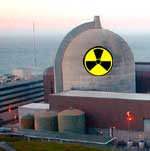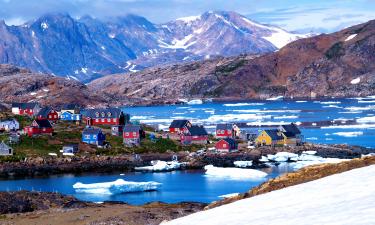USA to develop nuclear power industry to extricate from the energy crisis
The USA will find itself dependant on foreign gas suppliers
George W. Bush continues implementing his pre-election program. One can now witness the development of the national nuclear power. The US Department for Energy has recently agreed to compensate nuclear reactor makers for expenses connected with the requirements of the nuclear control committee to receive permissions for construction. The USA's interest in the nuclear power is rather large, for the expenses to obtain an approval from the committee are evaluated at $50 million for one reactor. The state is ready to compensate a part of the sum. In addition, the U.S. Department of Energy will be promoting the decision pertaining to the construction of a spent fuel storage in Nevada. 
Experts explain the state protectionism with lobbying efforts of America's largest nuclear consortiums, which were forced to work in foreign countries on account of the secret ban to build new reactors on the territory of the USA. Specialists point out such energetic companies as Dominion Resources, Exelon and Entergy, which evince great interest in the construction of nuclear reactors in several states.
It seemed just a couple of months ago that their hopes would never be justified. It was planned to satisfy the growing need of electric power by means of increasing gas extraction in Colorado, New Mexico, Utah and Wyoming. Experts of the Chicago State University published a special report in August of the current year pertaining to the economic future of the nuclear power. In the report, they set out their certainty of the 10% increase of the gas energy share by 2010.
However, it becomes clear now that the increasing exploitation of national reserves will not be able to catch up with the growing internal demand. The USA will find itself dependant on foreign gas suppliers. It is obvious that the USA considers the gas constituent of the national energy as a temporal support only.
Alternative sources of energy can not replace traditional ones so far, at least for power industries of large countries. The world hopes for thermonuclear power. The ITER consortium is currently working on this issue: an experimental thermonuclear reactor is planned to be built in the near future. The USA joined the project rather enthusiastically, although it pulled out from it later, having considered it too expensive and not very promising. In 2003, the USA revised its position on the matter and returned to ITER.
Coal will not last forever either, although it fuels more than half of the US power industry. In addition, coal provides 90 percent of all atmospheric emissions. The USA's refusal to ratify the Kyoto Protocol does not mean that Americans completely disregard the ecological reality chasing after the economic growth. Experts of the Chicago University are certain that the burning of coal will drop by four percent during the forthcoming six years.
The cost of the nuclear electric power has been decreasing for years already. The current price is less than three cents per 1 kw/h. It is 1.5 times more expensive than the cost of the coal kilowatt and 1.3 times more expensive than the gas electricity. The continuing rise of prices on the hydrocarbon raw material will probably balance the price situation. It is noteworthy that many American nuclear power plants would like to achieve the level of one cent per kw/h.
The US administration reportedly considers a variant to increase the share of the nuclear power up to 25 percent within the scope of the program of the Department of Energy till 2010. It is planned to build two nuclear reactors and increase the capacity of functioning reactors.
To speed up the implementation of the program, the US government is ready to compensate the above-mentioned expenses. In addition, it is planned to pay ecological allowances to nuclear power plants too. American officials refer to the experience of France and Japan, when it comes to the development of the nuclear power. The share of nuclear power in France reaches the record of 76 percent. The Japanese index is twice as less, but Japan's nuclear power industry is the most dynamic one in the world: it will gain ten percent during the coming five years. It is noteworthy that Europe and Japan have quite a negative attitude to the “peaceful atom” issue. The economic necessity, however, makes the government take socially unpopular measures.
Sergei Malinin
Subscribe to Pravda.Ru Telegram channel, Facebook, RSS!




